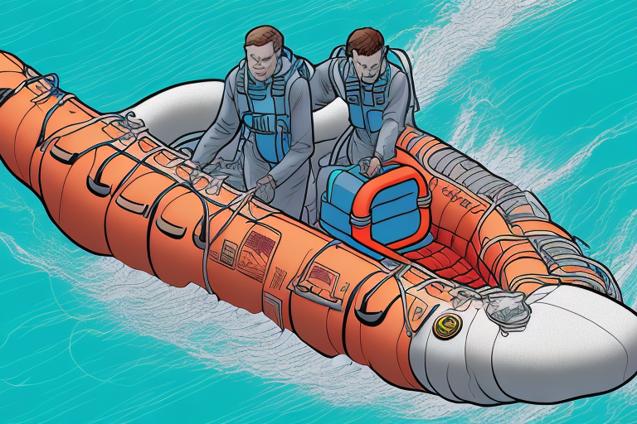
Being prepared for mental health emergencies while sailing is crucial for maintaining safety and well-being on board.
Sailing and Mental Health Emergencies: How to Respond and Get Help
Sailing the open seas with your family can be an incredibly rewarding and fulfilling experience. However, it’s essential to be prepared for any situation that may arise, including mental health emergencies. In this article, we will discuss how to recognize the signs of a mental health crisis, how to respond, and how to get help while sailing.
Table of Contents
- Understanding Mental Health Emergencies
- Recognizing the Signs
- How to Respond
- Getting Help
- Preventing Mental Health Crises
- Conclusion
Understanding Mental Health Emergencies
A mental health emergency is a situation in which an individual is experiencing severe emotional distress or is at risk of harming themselves or others. These emergencies can be triggered by various factors, including stress, trauma, or an underlying mental health condition.
While sailing, it’s crucial to be aware of the potential for mental health emergencies, as the isolation and unique challenges of life at sea can exacerbate existing mental health issues or create new ones. Additionally, access to professional help may be limited, making it even more critical to know how to respond in these situations.
Recognizing the Signs
It’s essential to be able to recognize the signs of a mental health emergency to respond effectively and get help as soon as possible. Some common signs include:
- Sudden changes in mood or behavior
- Withdrawal from social interactions
- Increased agitation or irritability
- Expressions of hopelessness or despair
- Talking about self-harm or suicide
- Engaging in risky or impulsive behaviors
- Experiencing hallucinations or delusions
- Severe anxiety or panic attacks
It’s important to note that these signs can vary from person to person, and not everyone will exhibit the same symptoms. Trust your instincts and pay attention to any changes in your loved ones’ behavior or emotional state.
How to Respond
If you believe someone on your boat is experiencing a mental health emergency, it’s crucial to respond calmly and supportively. Here are some steps to take:
-
Stay calm and composed: Your loved one may be feeling overwhelmed and frightened, so it’s essential to remain calm and provide reassurance. Speak in a gentle, non-confrontational tone, and avoid making any sudden movements.
-
Listen and empathize: Encourage the person to express their feelings and thoughts, and listen without judgment. Validate their emotions and let them know that you’re there to support them.
-
Ask about their safety: If you’re concerned that the person may be at risk of self-harm or suicide, ask them directly. This can be a difficult conversation, but it’s crucial to know if they’re in immediate danger.
-
Offer help: Let the person know that you’re there to help them and that they don’t have to face this crisis alone. Offer to assist them in finding professional help or contacting a mental health crisis hotline.
-
Create a safe environment: If the person is at risk of self-harm or suicide, remove any potential means of harm from their immediate surroundings. This may include sharp objects, medications, or anything else that could be used to inflict harm.
-
Stay with them: Do not leave the person alone if they’re in crisis. Stay with them until they’re safe or until professional help arrives.
Getting Help
When you’re sailing, access to professional mental health services may be limited. However, there are still ways to get help in a crisis:
-
Satellite phone or radio: If you have a satellite phone or radio on board, use it to contact emergency services or a mental health crisis hotline. They can provide guidance on how to handle the situation and may be able to connect you with a mental health professional.
-
Nearest port or marina: If you’re close to a port or marina, consider docking and seeking help on land. This may involve contacting local emergency services or finding a mental health professional in the area.
-
Telemedicine services: Some mental health professionals offer telemedicine services, which allow you to consult with a therapist or psychiatrist via video call. This can be a valuable resource when you’re sailing and unable to access in-person care.
-
Support networks: Reach out to friends, family, or fellow sailors who may have experience dealing with mental health emergencies. They can offer advice, support, and potentially connect you with resources.
Preventing Mental Health Crises
While it’s essential to know how to respond to a mental health emergency, prevention is always the best approach. Here are some tips for maintaining mental well-being while sailing:
-
Maintain a routine: Establishing a daily routine can provide a sense of stability and predictability, which can be comforting in the ever-changing environment of life at sea.
-
Stay connected: Regularly communicate with friends and family back home to maintain social connections and prevent feelings of isolation.
-
Practice self-care: Make time for activities that promote relaxation and well-being, such as exercise, meditation, or hobbies.
-
Monitor mental health: Regularly check in with yourself and your loved ones to assess your mental health and address any concerns before they escalate into a crisis.
-
Seek professional help: If you or a loved one is struggling with mental health issues, don’t hesitate to seek professional help. Early intervention can prevent a crisis and improve overall well-being.
Conclusion
Sailing with your family can be an incredible adventure, but it’s essential to be prepared for any situation, including mental health emergencies. By recognizing the signs, knowing how to respond, and taking steps to prevent crises, you can ensure that your sailing experience remains safe and enjoyable for everyone on board.